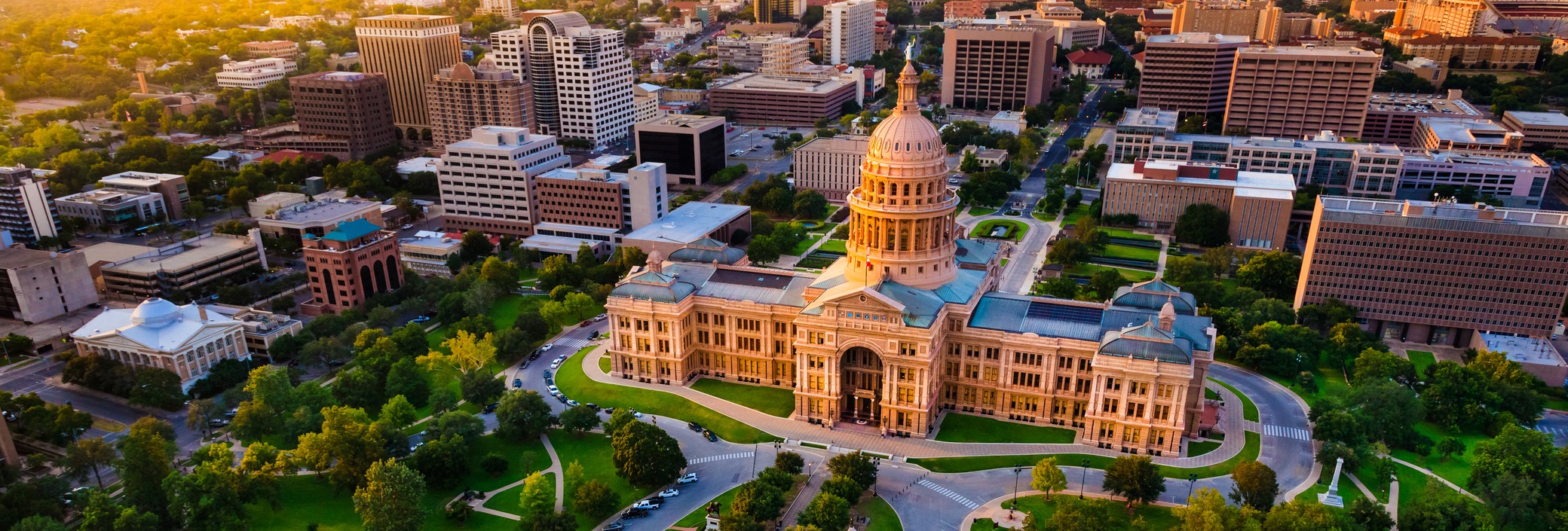Governor Abbott Announces Phase Two of Reopening Texas
Published May 19, 2020 by Sophia Guevara
Governor Abbott announced the next phase of reopening Texas on Monday and issued Executive Order GA-23, effective through June 3, 2020. The executive order allows for the opening of several sectors, including childcare, recreational activities, and personal services. The announcement follows the phased approach to reopening businesses across Texas outlined in the Governor’s Report to Open Texas, which was initially released on April 27. The key points announced on Monday include:
Effective immediately, Monday, May 18
- Services provided by office workers in offices may reopen up to the greater of (i) 10 employees, or (ii) 25 percent of the workforce, provided employees maintain appropriate social distancing
- Child-care services
Beginning Friday, May 22
- Restaurants may operate at up to 50 percent of the total listed occupancy (increased from 25 percent)
- Bars may open at up to 25 percent of the total listed occupancy
- Aquariums, natural caverns and similar facilities may open at up to 25 percent of the total listed occupancy
- Bowling alleys, bingo halls, simulcast racing, and skating rinks may operate at up to 25 percent of the total listed occupancy
- Rodeos and equestrian events may operate at up to 25 percent of the total listed occupancy
- Drive-in concerts, under guidelines that facilitate appropriate social distancing and generally require spectators to remain in their vehicles
- Amateur sporting events (i) at which there is no access to the general public allowed; and (ii) for which all participants have tested negative for COVID-19 prior to the event, are quarantined for the duration of the event, are temperature-checked and monitored for symptoms daily, and are tested again for COVID-19 at the end of the event
Beginning Sunday, May 31
- Professional basketball, baseball, softball, golf, tennis, football, and car racing events, with no spectators physically present on the premises of the venue, as approved on a league-by-league basis
- Youth camps
- Practices for youth sports programs, provided, however, that games and similar competitions may not begin until June 15
Beginning Monday, June 1
- Public school districts may offer on-campus summer school programs
- Private schools and institutions of higher education may reopen campuses
El Paso and Panhandle
Reopenings in El Paso county and Deaf Smith, Moore, Potter, and Randall counties are generally delayed one week from the above dates because of (1) smaller margin of hospital capacity in El Paso; and (2) COVID-19 spike at meatpacking plants in the panhandle.
A full list of Open Texas checklists can be found here.
Visit the Partnership’s Work Safe page, which provides full information on the Governor’s reopen protocols along with tools, guidance, and industry best practices for reopening. We also encourage you to visit coronavirus resources for the latest information concerning the pandemic and hope you will join us for upcoming presentations through our COVID-19 Business Forum.
 The Houston Report
The Houston Report




















